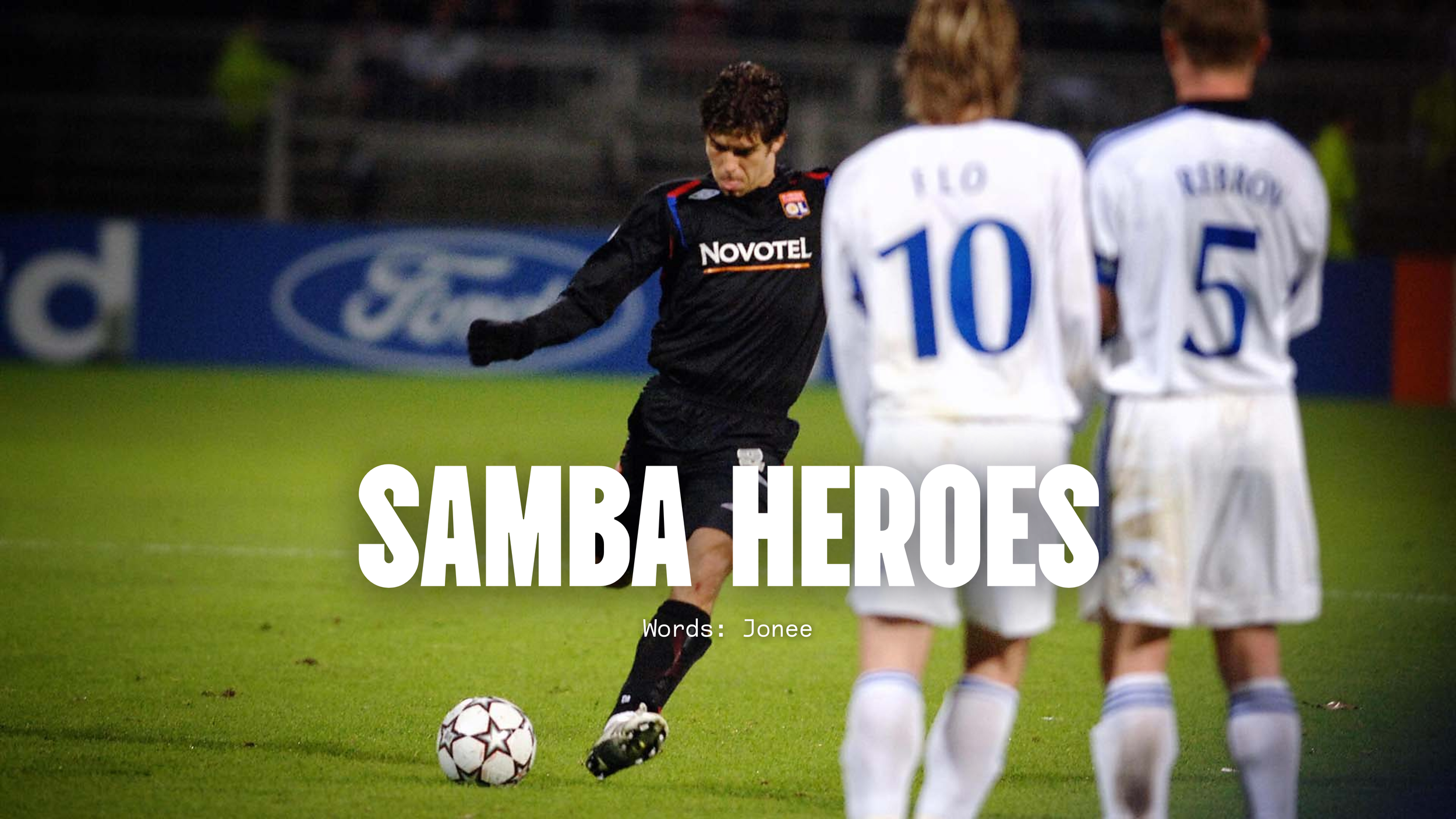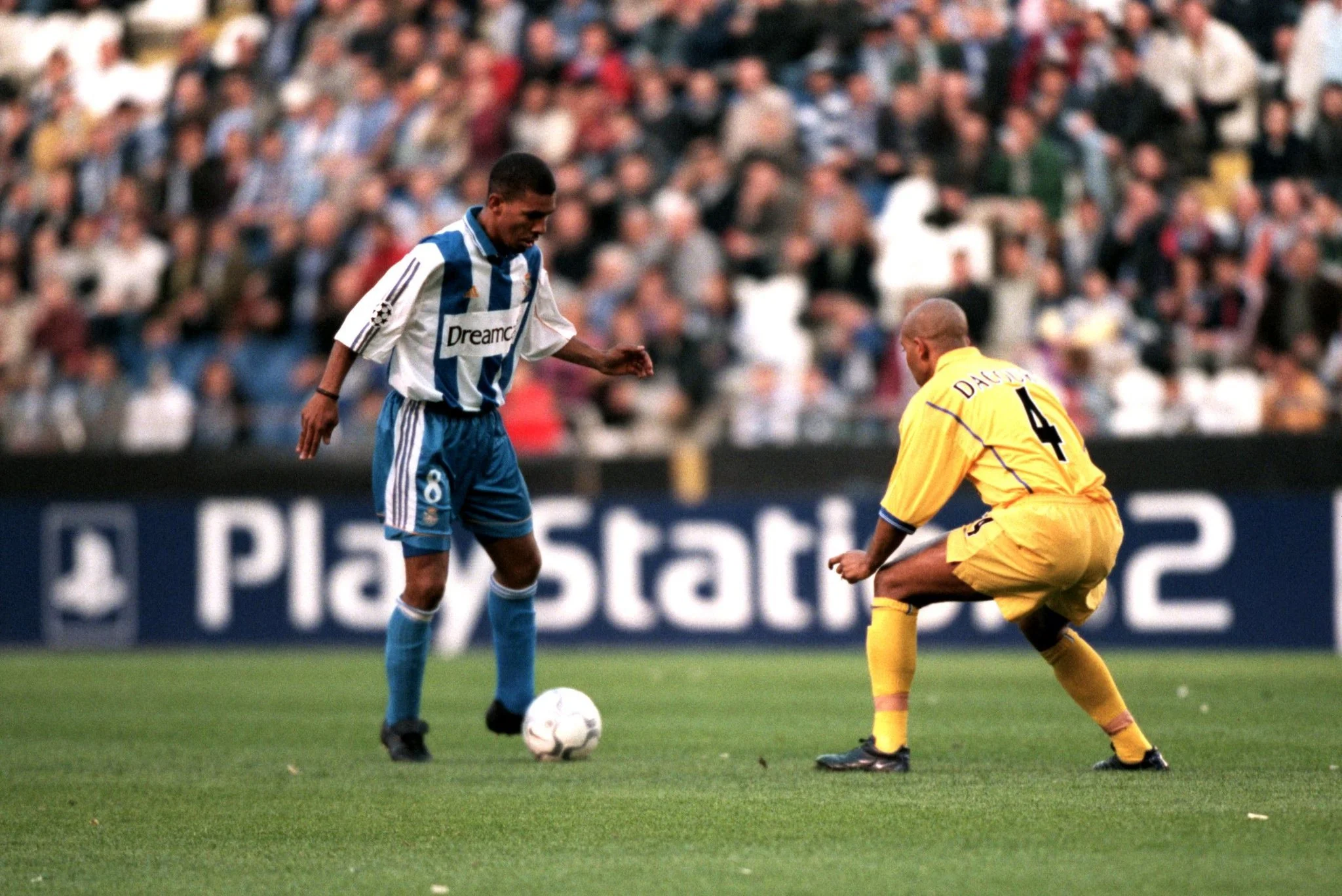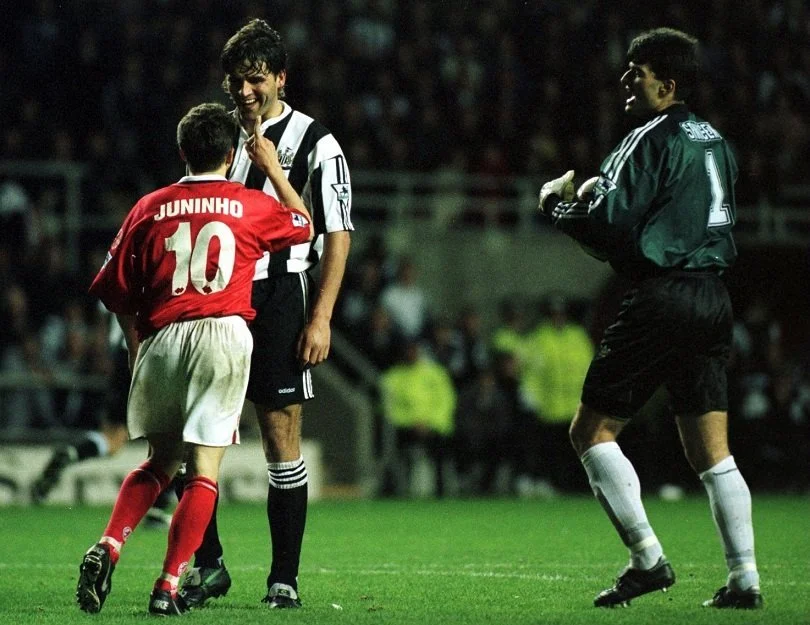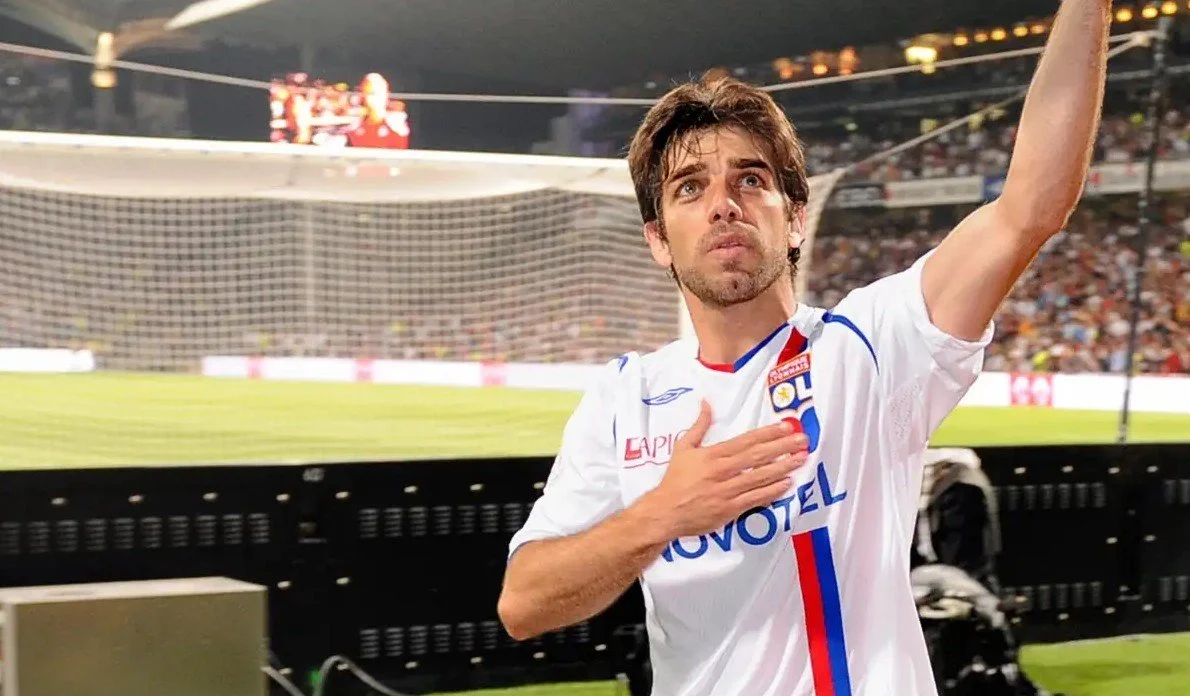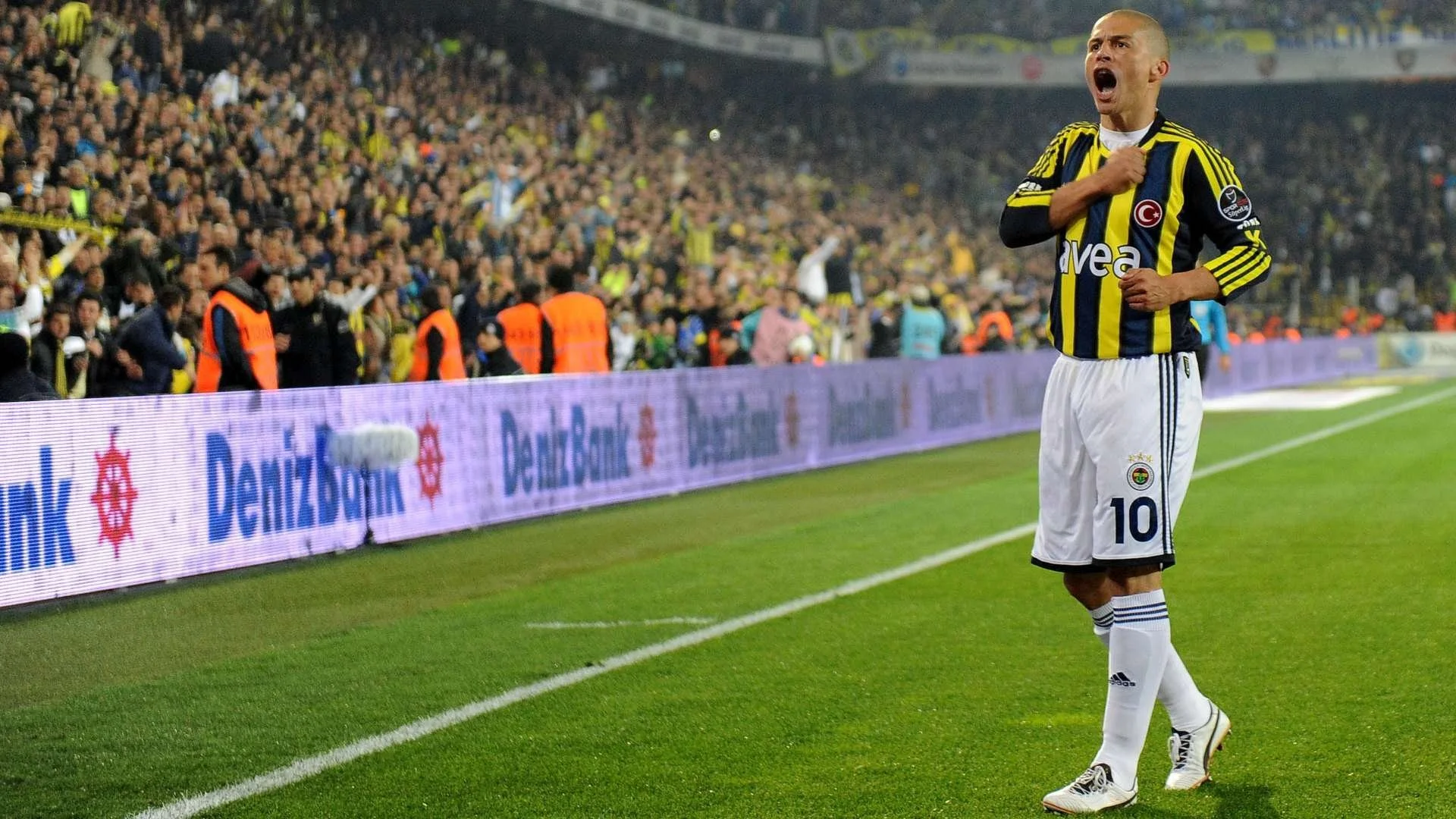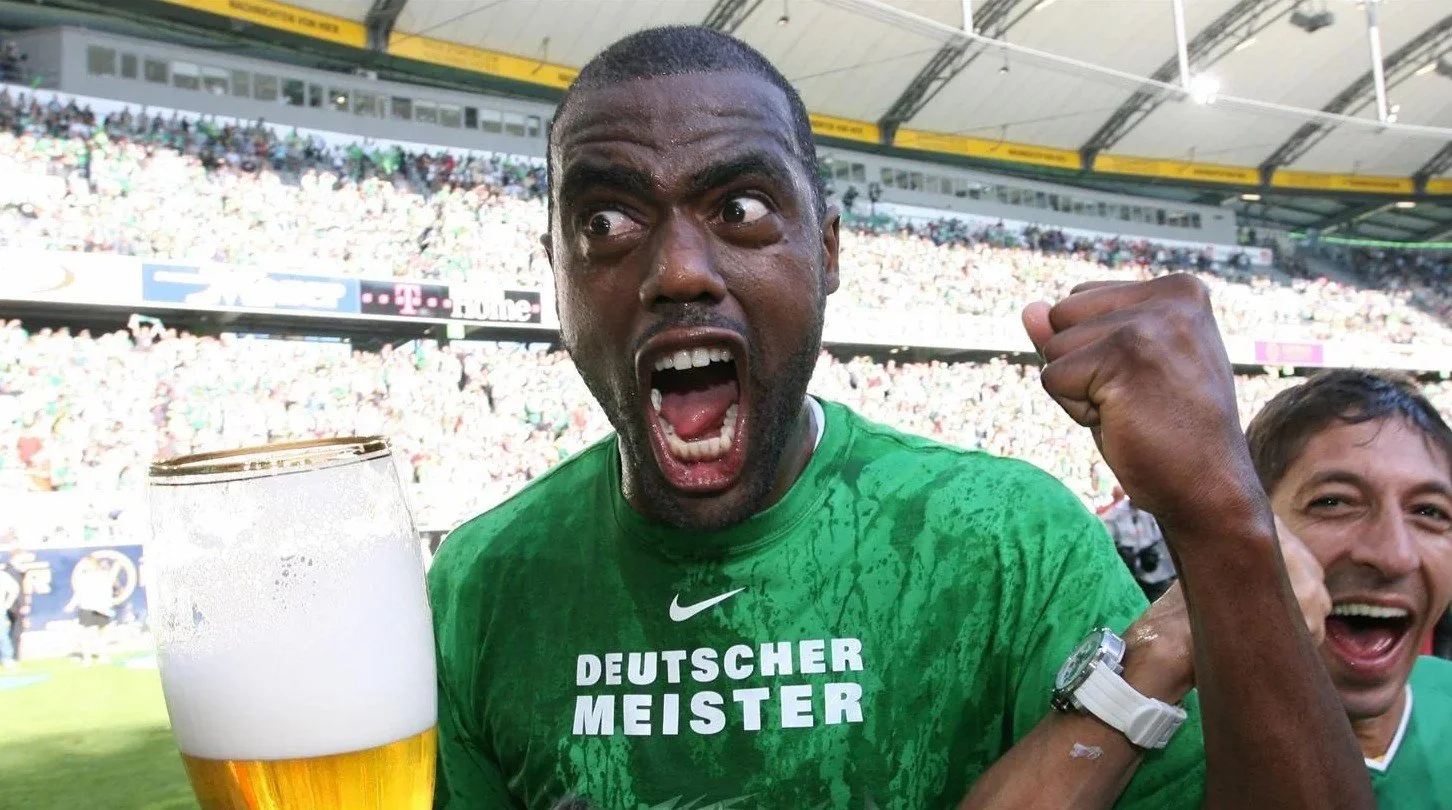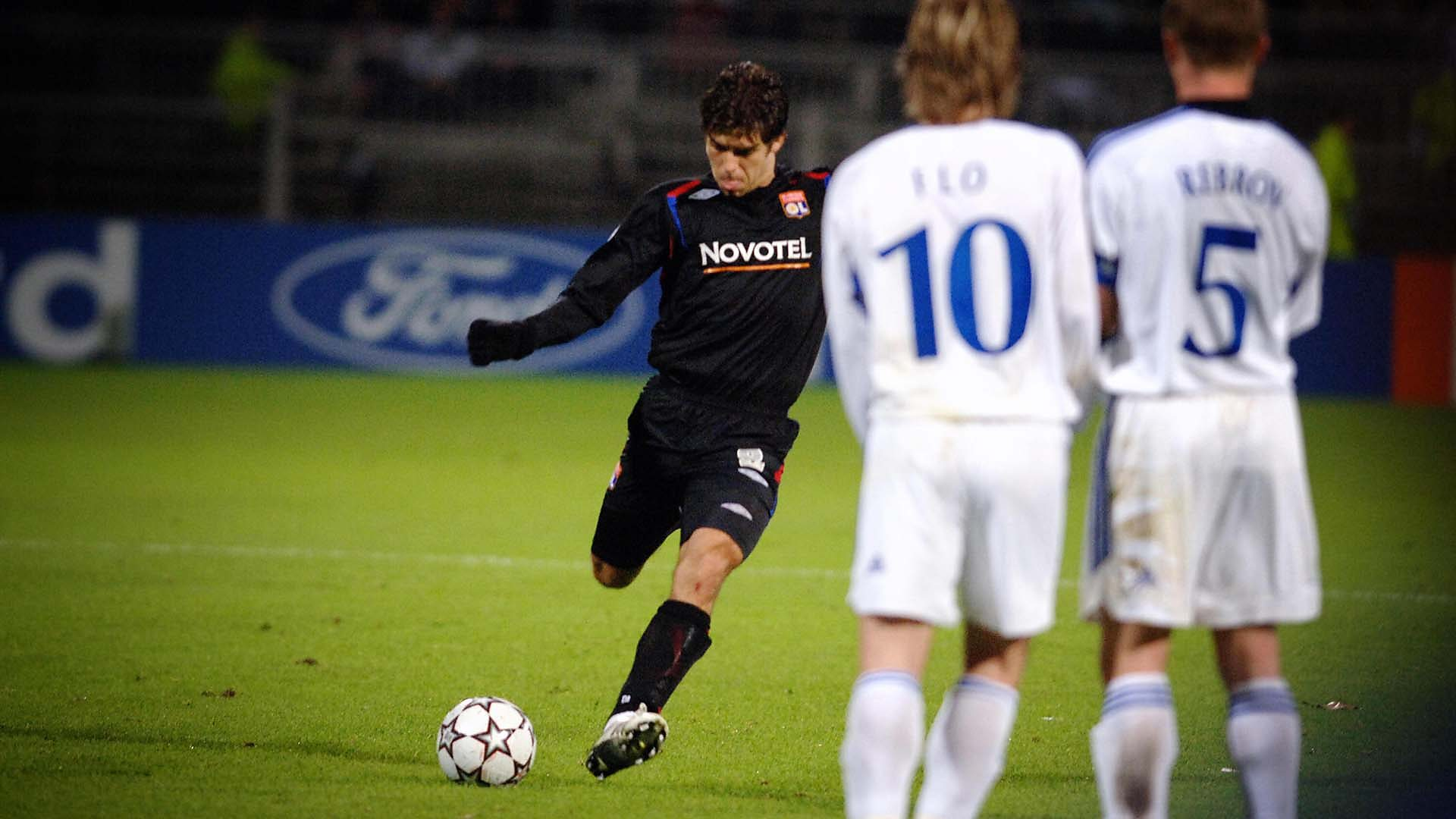
Words by Jonee | Published 24.05.2025European football and Brazilian footballers - a love affair decades old and showing no signs of slowing. The sheer number of clubs across the continent that have seen Brazilian players shine at the highest level is staggering. One could almost argue that without Brazilian footballers, European football wouldn’t be the same, though in truth that’s a bit of an exaggeration.
Whichever side you support, chances are you’ve been captivated by a Brazilian player at some point. When you think of Brazilian footballers, flair and skill spring to mind. After all, they hail from the nation of Joga Bonito. Their almost uncanny ability to play with joy and panache is mesmerising, but don’t be fooled—European pitches have also witnessed hardnosed Brazilian players willing to put their bodies on the line for their teams. Often, this flair and gritty determination combine, enabling them to thrive in all manner of leagues and clubs.
This intoxicating blend of flair and fight has turned Brazilian footballers into legends at clubs far from Europe’s spotlight. While the likes of Pelé, Ronaldo, or Ronaldinho dazzled at global giants, it’s at the less heralded outposts—places like La Coruña, Teesside, or Wolfsburg—where their magic often burns brightest. Here, they don’t just play; they weave stories, forging bonds with fans who see them as more than players but as Samba Heroes who breathe life into their clubs’ dreams. Five such players epitomise this.
Djalminha became a hero at Deportivo La Coruña
Photo Credit: Deportivo La CoruñaDjalminha: The Wizard of Riazor
Djalminha, born Djalma Feitosa Dias, arrived at Deportivo La Coruña in 1997 from Palmeiras. Deportivo, a club from Spain’s northwest, were no strangers to ambition but lacked the pedigree of Real Madrid or Barcelona. Djalminha changed that. His 86 goals in over 200 appearances, including a jaw-dropping rabona against Real Madrid in 2000, were pure Joga Bonito. His signature ‘lambreta’—a flamboyant flick over an opponent’s head—left defenders humiliated. Yet, his genius wasn’t just technical; it was emotional. He played with a fire that mirrored Galicia’s passionate supporters. His role in Deportivo’s 1999–2000 La Liga title, their first and only, was pivotal, his creativity unlocking defences in a campaign that saw them stun Spain’s elite. The 2002 Copa del Rey win, dubbed the “Centenariazo” at Real Madrid’s Bernabéu, bore his mark too.
But Djalminha’s cult status wasn’t without flaws. His temper—most infamously head-butting coach Javier Irureta in 2002—added a rogue charm. Fans forgave him, for every outburst came with moments of magic, like his curling freekicks or audacious assists. His loyalty to a club outside Spain’s big two made him a hero. Even today, Deportivo’s official site and fan forums celebrate him as the heartbeat of their golden age, a player who proved flair and fight could coexist.
Juninho Paulista became a journeyman, but cut his teeth at Middlesbrough where he remains a cult hero.
Photo Credit: Football365Juninho Paulista: The Little Fella’s Big Heart
Across the Channel, Juninho Paulista became Middlesbrough’s talisman, a pint-sized maestro who brought samba to Teesside’s industrial heartland. Signed from São Paulo in 1995 for £4.75 million, he was a gamble for a newly promoted Premier League side.
But Juninho delivered.
His 34 goals in 162 appearances across three spells don’t tell the full story. His dribbles, like the mazy run against Manchester United in 1996, were spellbinding, his vision crafting chances for a team often battling relegation and fighting against the odds. The 1996–97 season, despite ending in relegation, saw him score 12 goals, earning him the Premier League Player of the Year by fans.
Juninho’s connection with Middlesbrough was visceral. He wept after their 1997 FA Cup final loss, showing a passion that resonated with Boro’s working-class fans. His return in 2002, after stints at Atlético Madrid, culminated in the 2004 League Cup, Boro’s first major trophy. For a club far from England’s elite, Juninho became a cult hero, his flair matched by a gritty resolve to fight for every point.
Juninho Paulista embodied this spirit of the fans. Teesside, with its steelworks and grey skies, was an unlikely home for samba, yet Juninho made it his own. But it was his heart that won Boro fans. He fought for every loose ball, dove into tackles, and wore the red shirt like a second skin.
Juninho Pernambucano is fondly remembered, not just in Lyon.
Photo Credit: GoalJuninho Pernambucano: The Free-Kick King In France
Juninho Pernambucano transformed Lyon. Joining from Vasco da Gama in 2001, he captained Lyon to seven consecutive Ligue 1 titles (2001–2008), a feat unimaginable before his arrival when they were perennial underdogs. His 100 goals in 344 appearances, many from free-kicks, redefined set-piece artistry. His curling strike against Bayern Munich in 2003’s Champions League remains a staple YouTube watch. Juninho’s 44 free-kick goals for Lyon—a record—were no fluke; his precision was surgical, seemingly defying physics.
Yet, Juninho was more than a dead-ball specialist. His work rate, tackling, and leadership as captain embodied the Brazilian duality of flair and grit. He’d sprint back to defend, then launch a 40-yard pass to spark an attack. Lyon’s rise to European contenders, reaching three Champions League quarter-finals, owed much to his vision. Fans adored his humility—staying eight years at a club then considered a step below Europe’s elite. His tearful 2009 farewell, thanking supporters in broken French, cemented his cult status. Juninho’s legacy endures in Lyon’s modern ambition, a testament to a player who made a mid-tier club a household name.
Alex spent 8 seasons at Fenerbahçe, and one day hopes to manage them.
Photo Credit: SportskeedaAlex: The King of Istanbul
In Turkey, Alexsandro de Souza, simply Alex, became Fenerbahçe’s “Kral Alex” (King Alex). Joining from Cruzeiro in 2004, he redefined the club’s attacking identity. His 171 goals and 146 assists in 344 appearances made him Fenerbahçe’s all-time Süper Lig top scorer. His free-kicks, like the 2005 screamer against Beşiktaş, were works of art, but his playmaking—setting up Tuncay Şanlı or Pierre van Hooijdonk—was equally as vital. Leading Fenerbahçe to the 2010–11 Süper Lig title, he was the linchpin.
Alex’s cult status came from his loyalty. He stayed eight years, captaining the side through turbulent seasons, including a 2011 match-fixing scandal. When he left in 2012, fans protested the club’s decision, and his statue outside Şükrü Saracoğlu Stadium reflects his reverence. Alex’s blend of silky skills and fierce commitment turned a big Turkish club, but not a European giant, into his kingdom.
In Germany, Grafite—Edinaldo Batista Libânio—etched his name into Wolfsburg’s history. Signed from São Paulo in 2007, he led the Wolves to their first and only Bundesliga title in 2008–09, scoring 28 goals to become the league’s top scorer and Player of the Year. His back heel against Bayern Munich that season, a moment of pure Joga Bonito, is remembered by fans as “the goal that defined Wolfsburg.” His 59 goals in 107 appearances showcased his lethal finishing, but his work rate—pressing defenders and linking play with Edin Džeko—was just as crucial.
Grafite’s journey from Brazil’s lower leagues to Bundesliga glory resonated with Wolfsburg’s underdog spirit. His wolf-mimicking celebrations endeared him to fans, who saw him as one of their own. Even in tough seasons, like 2010–11’s relegation scrap, he fought tirelessly. Grafite’s impact transformed a club once seen as mid-table into a title-winner, his flair and grit embodying the Brazilian spirit.
The Essence of Samba Heroes
But what unites these players? It’s their ability to transcend their clubs’ modest statures. Their goals and panache brought joy to fans who rarely tasted glory. Yet, their flair was matched by determination. Many came from Brazil’s favelas or small towns, where football is a lifeline. They carried that hunger to Europe, turning pitches in working-class communities, similar to their own hometowns, into canvases for their art. They didn’t need the Bernabéu or Camp Nou, and the fact that they shone at underdog clubs can’t be understated. It was in their DNA.
This essence—flair fused with fight—stems from Brazil’s soul. These players grew up where football is more than sport; it’s a language of hope. In favelas, on dusty pitches, they played to overcome poverty. The success they shared with the clubs they excelled at were ultimately forged by struggle.
These players became cult heroes because they’re relatable; to the clubs they played at, the fans they represented, and anyone else who watched. They’re the reason fans in La Coruña still hum samba tunes, why Middlesbrough kids wear number 10, why Lyon remembers its golden years.
I’ve chosen five Samba Heroes to represent Brazil’s magic in European football, but truth be told, I could’ve named hundreds more. The list is endless. To pay my respects to these players, allow me to mention just a few: Bruno Guimarães at Newcastle, Geovanni at Hull City, Mauro Silva at Deportivo, Luis Fabiano at Sevilla, Willian José at Real Sociedad, Aldair at Roma, Zé Maria at Parma, Zé Roberto at Bayer Leverkusen, Dedê at Borussia Dortmund, Diego at Werder Bremen, Raí at PSG, and Alan at Braga. And who could forget the Brazilian ‘corner’ at Shakhtar Donetsk, with Taison, Fernandinho, Willian, Luiz Adriano, Jádson, and Douglas Costa, among others. These Samba Heroes have shaped clubs and stirred supporters’ hearts, from gritty port cities to sunlit southern pitches. What a beautiful journey it has been, and I’m certain it will endure. They hail from a distant land, yet they are the soul of our game, making it infinitely more beautiful.
Brazil’s mark on European football is indelible. It’s the essence of Joga Bonito—a heady mix of silken dribbles, audacious flicks, and goals that dance like carnival. Yet, it’s laced with the earthier notes of grit, the sweat of tackles, the pulse of hearts that fight for every blade of grass. This Brazilian essence, born in sunlit favelas, wafts through Europe’s stadiums—a timeless vow that Brazil’s soul will forever make our beautiful game infinitely more enchanting.
Grafite had a phenomenal career at Wolfsburg.
Photo Credit: UEFA

